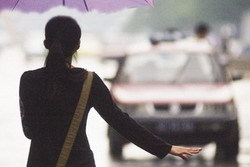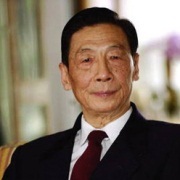
![]()
|
Getting a taxi –especially at peak times or busy places- has become extremely difficult in many big cities such as Beijing and Shanghai, as taxi drivers often refuse to provide service based on passengers' destination, under the pretense of shift relief. In an online discussion about the rampant cabbie refusals initiated by Sina micro blog, which attracted over 100,000 netizens in just one day, 94 percent of those polled said they had been refused by taxi drivers. While some enraged netizens call for stricter penalties for cabbies refusing rides, others express their understanding by saying that traffic congestion, coupled with skyrocketing oil prices and poor pay, has made many taxi drivers pickier about their customers. |
![]()
|
@Mao Yushi, well-known economist in China I think the main reason is the extremely low taxi fares, which cause supply to fall short of the demand. It doesn't make sense for the government to prevent price increases with fuel subsidies. |
|
@scirocco1, Sina Weibo user Why blame taxi drivers? Driving to them is just a job. I get to know their concerns after chatting with them. They choose to rest, refuse to take passengers and change shifts in rush hour because the traffic in Beijing is really bad. |
|
@Yao Yibin, Voice of China As for Beijing, stopgap measures cannot solve the problem. Why not add more special bus lanes to relieve the pressure of traffic jams? |
|
@ningbuqu, Sina Weibo user I think there are two issues. First, the monthly fee to taxi companies is so exorbitant that taxi drivers have to work over 12 hours a day. Reduction in the fees is the key. Second, stricter penalties should be imposed on those cabbies. |
|
@Zhao Pu, CCTV anchor Beijing's taxi market should be open to individuals and allow free competition. The individual can decide to enter the taxi market or not. The government would still play a role in supervision and qualification recognition. Then there would be fewer illegal taxis, cabbie refusals and bad service. |
![]()
|
Things may change, as a large-scale campaign of cracking down on those taxi drivers who refuse to take passengers has been launched in many big cities. In Beijing, a 24-hour hotline has been set up for passengers to make complaints. Drivers found guilty of unlawful refusal of a passenger will face a fine of $158 to $315, and for a third offense, the taxi company will terminate their contract. However, one cannot help but ask whether the temporary campaign is effective. Many experts have suggested solutions, but until a fundamental reform, such as marketization of the industry to allow free competition, helps taxi drivers escape their predicament, the problem will not go away. |





